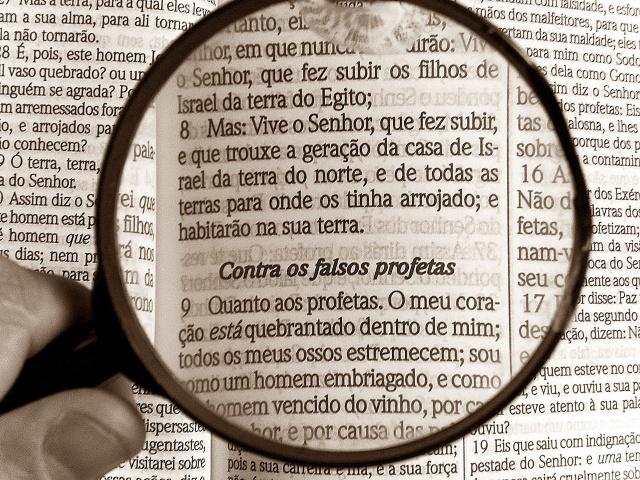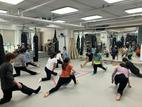Theological education is essential to the foundation of the Christian faith. In the past, Chinese churches faced a major shortage of ministers with formal theological training. During that time, even the ability to read books and newspapers was often considered sufficient for someone to serve as a minister. However, by God's grace, theological education has become increasingly accessible to pastors and ministers in China over the past two decades. Today, a minister needs to acquire theological knowledge in addition to general education and knowledge.
However, is theology only for pastors and ministers? How can ordinary Christians "enter" theological education? A church in Central China where Brother Han serves has a real case of theological education for middle-aged and elderly people.
Ordinary Christians Also Need Theology
Han left school before completing high school. After dropping out, he joined a "catechism class," a simplified version of a theological seminary, where he spent a year studying basic theology courses. Upon graduation, he became a full-time minister. However, after a year, Han felt inadequately equipped in theology and decided to pursue formal theological education at a seminary.
Regarding theological education, Han believes that the future development of churches in China will inevitably require a solid theological framework. He emphasizes that not only pastors and ministers but also ordinary believers should establish their own theological framework, especially in an era where heresies are widespread. However, in reality, most churches rarely incorporate theological teachings into their sermons, as they aim to accommodate the general congregation. As a result, theological education for ordinary believers has become a "vacuum zone."
How to Provide Theological Education for Ordinary Christians?
There is a deeper reason why Brother Han offers theological education to middle-aged and elderly believers. Initially, he only provided theological courses to young and well-educated believers. "These young people have a strong desire to explore. They often say there are many things in the Bible they don’t understand but truly want to understand—such as the Trinity and complex biblical concepts like the flesh, the law, and grace. They are also eager to learn about church history and the Reformation," Han explained.
After a period of study, all participants expressed that they had benefited greatly. Among those, several elderly sisters had relocated to this city to care for their grandchildren after their own children married and started families. Despite their busy schedules, they remained active in their faith and eager to learn.
Considering their low level of education and lack of theological education, Han finally decided to use the Bible study approach, but at the same time interspersed with some theological things, interpreted the scriptures, and then applied them to real daily life.
“At the beginning, I started with Genesis. I identified its central theme, theological insights, and other main contents in each chapter,” Han explained. “For example, when discussing the seven-day creation in Genesis 1, I introduced theological reflections. Before God created the world, everything was formless and without order. However, the world became ordered following God’s creation. Presenting it this way sometimes inspired the attendees.”
He continued, “I also raised some questions—such as whether each day of creation from the first to the seventh was literally 24 hours, why God chose to create in this way, why He saw each day of creation ‘good,’ and why He imparted His image to humanity. The most critical part of theology is reflection, which stimulates thought and discussion.”
"I'm still in the process of exploration," Han admitted. "When preparing a class, I need time creating PPT slides and carefully considering the content I want to cover." He acknowledged that teaching theology to ordinary believers is totally different from teaching seminary students.
"The primary goal is to ensure they understand. How much theological knowledge they grasp is actually secondary. Teaching theology to ordinary Christians cannot be rushed, which requires gradual accumulation."
Unlike seminaries, which have pre-existing teaching materials for students, there are no ready-made resources for ordinary Christians. As a result, Han needs to dedicate significant time and effort to preparing teaching materials. For the Chinese church, this is a relatively new and unfamiliar area. However, seeing many people actively attending classes and gaining valuable insights, Han believes all the effort is worthwhile.
Conclusion
In the history of Christianity, before the widespread use of papermaking and printing, the Bible was primarily accessible only to the clergy, with ordinary Christians having little to no access to it. However, with the popularization of papermaking and printing, beginning with the Gutenberg Bible, and especially following the Reformation, the Bible entered thousands of households, allowing ordinary Christians and even non-Christians to read it for themselves.
Today, the Chinese church is no longer unfamiliar with theology. However, it is undeniable that, in general, theology still feels somewhat "above it all" for many. The reason people feel this way is closely related to the fact that theological education has almost been the "patent" or "privilege" of the pastoral staff. Much like the Bible's decentralization in Christian history, theological education also needs to be decentralized and made accessible to the broader Christian community. Making theological education more widespread and accessible may become a critical challenge for the Chinese church in the future.
- Edited by Karen Luo, translated by Poppy Chan












